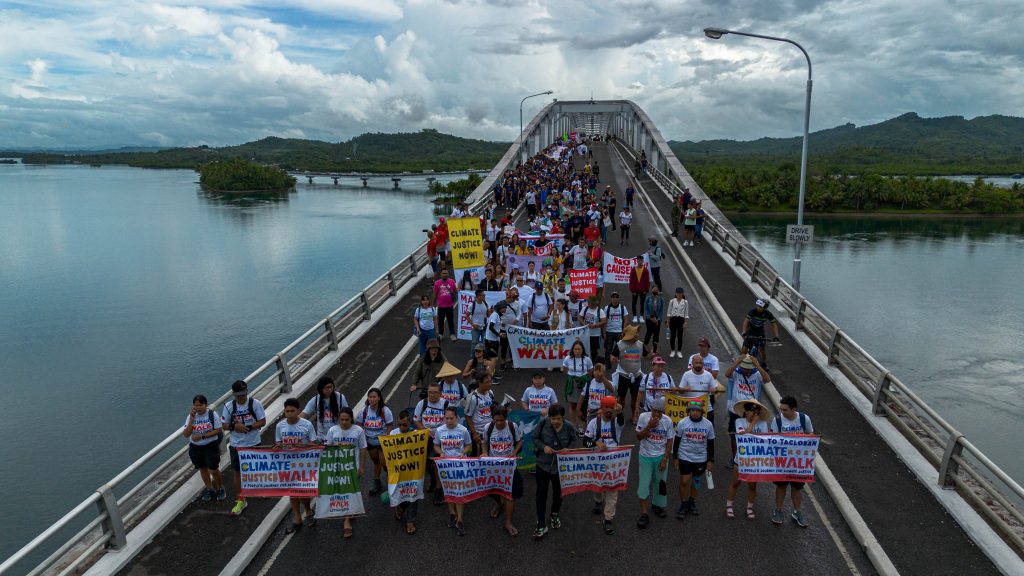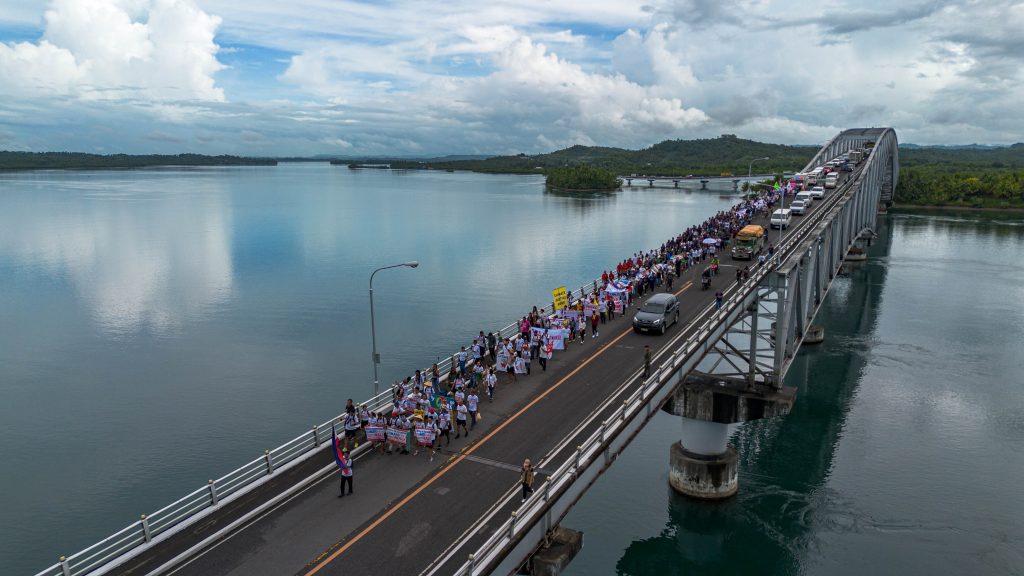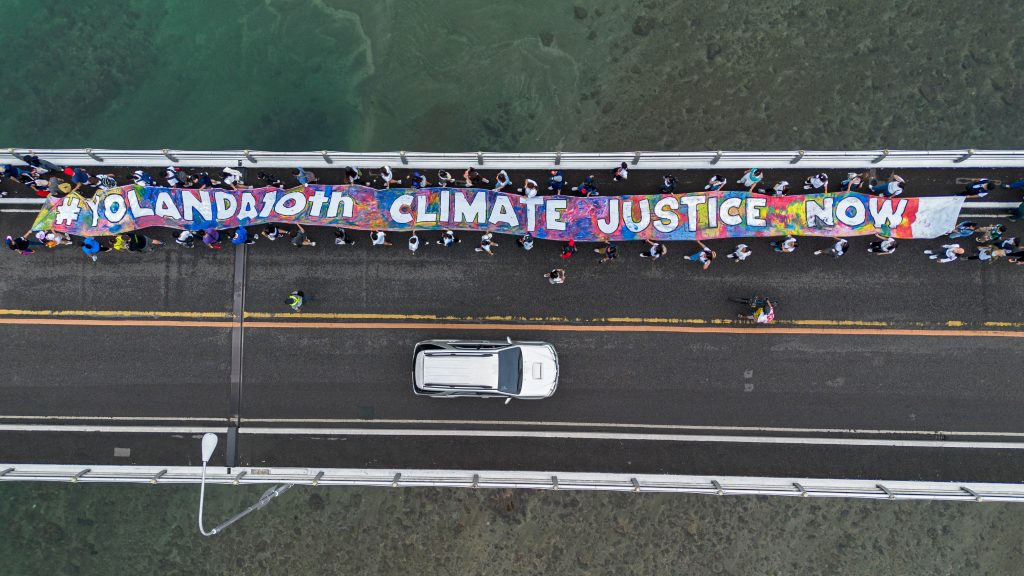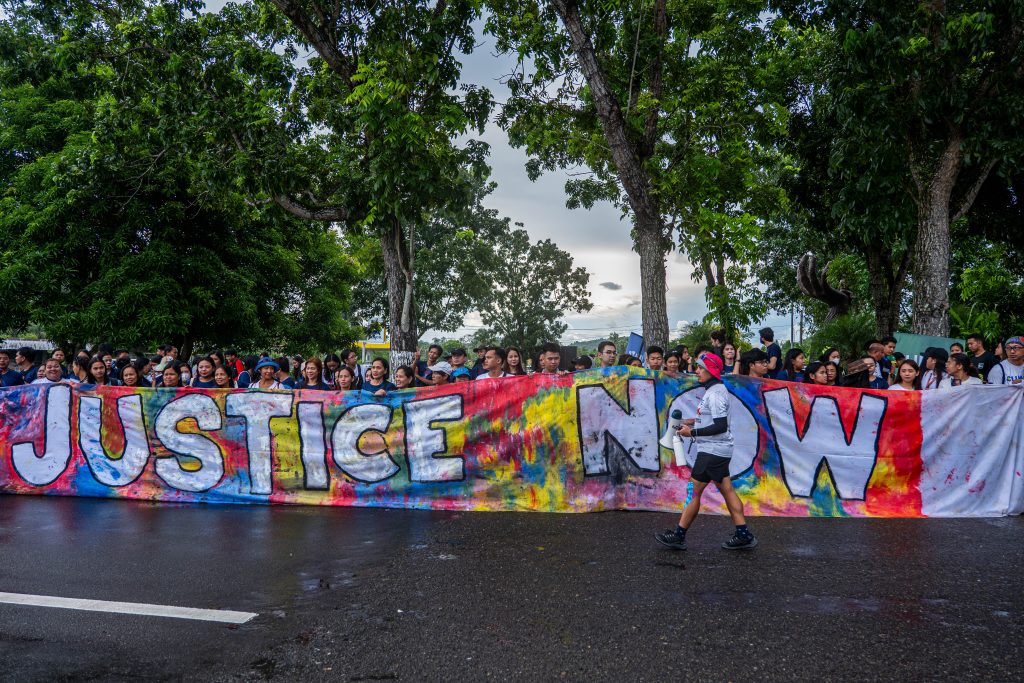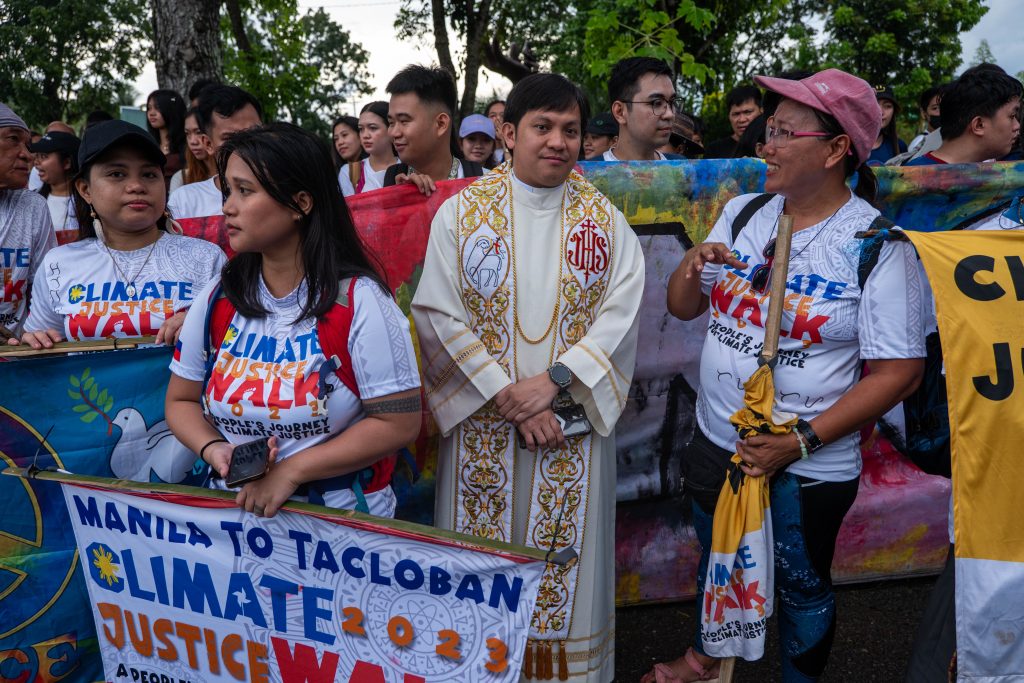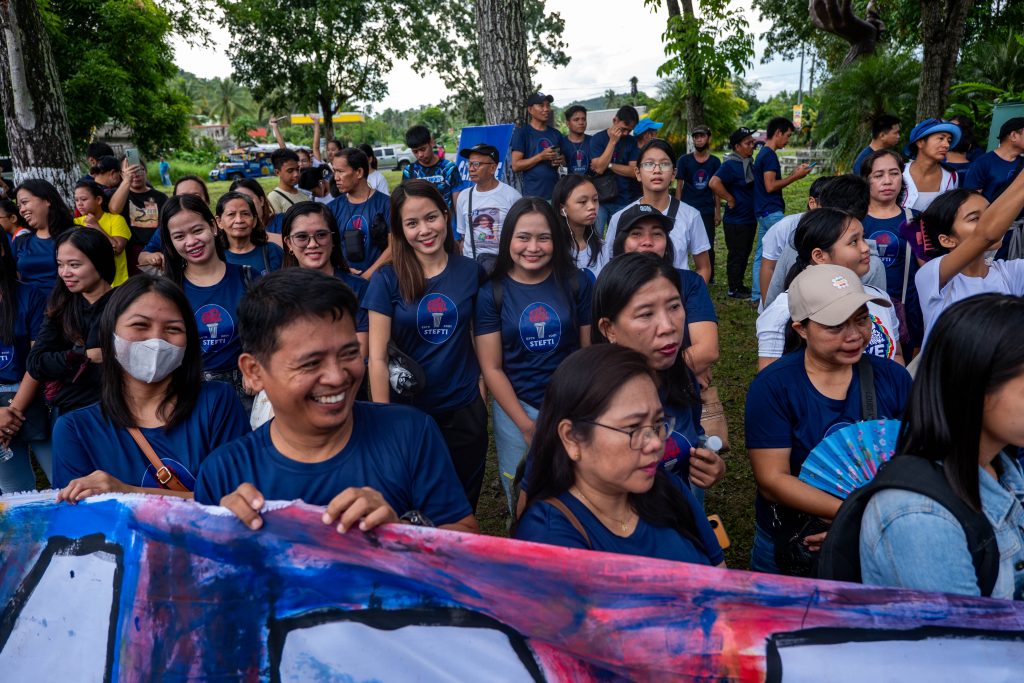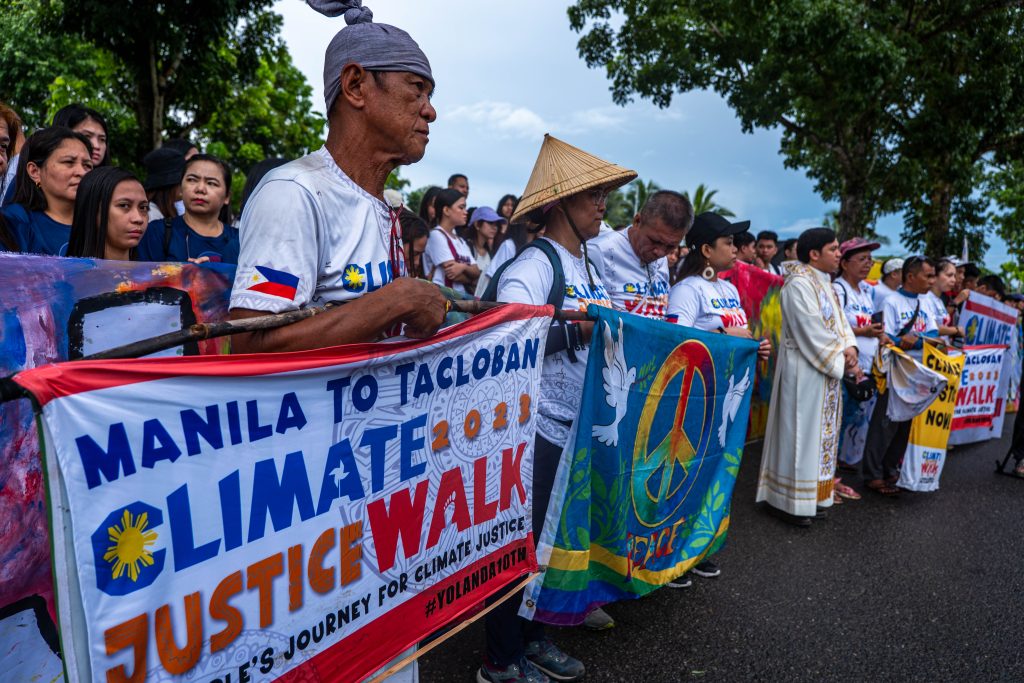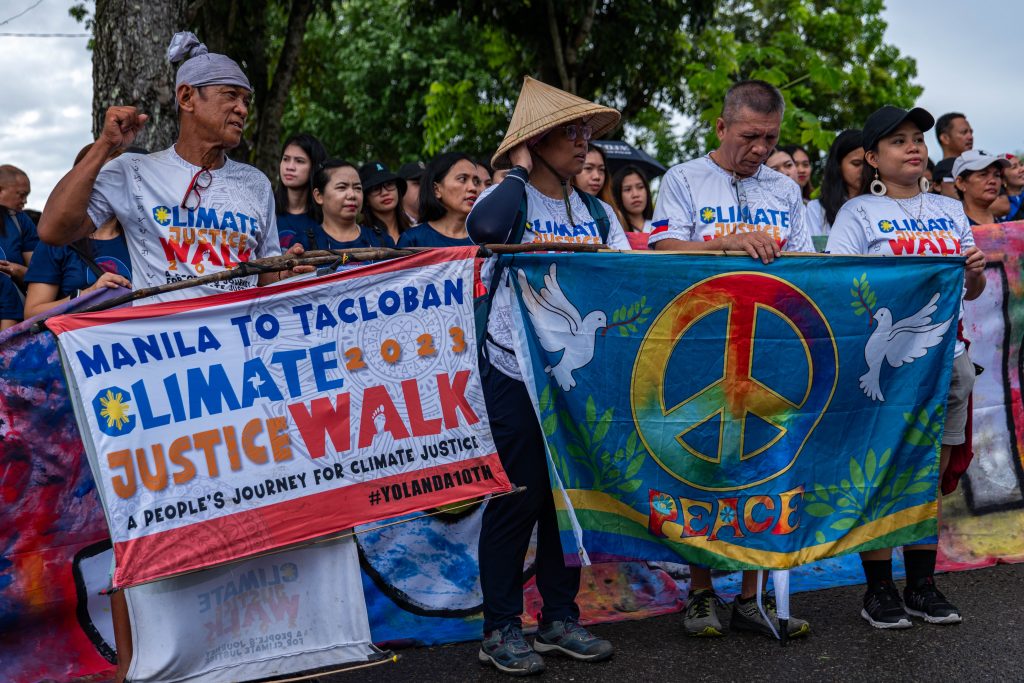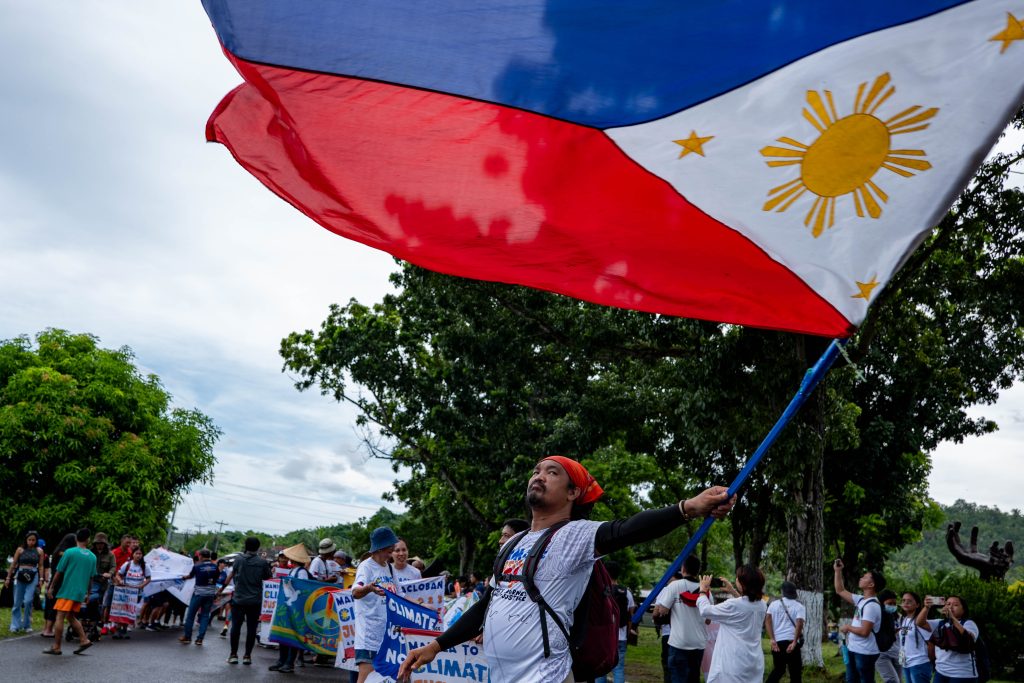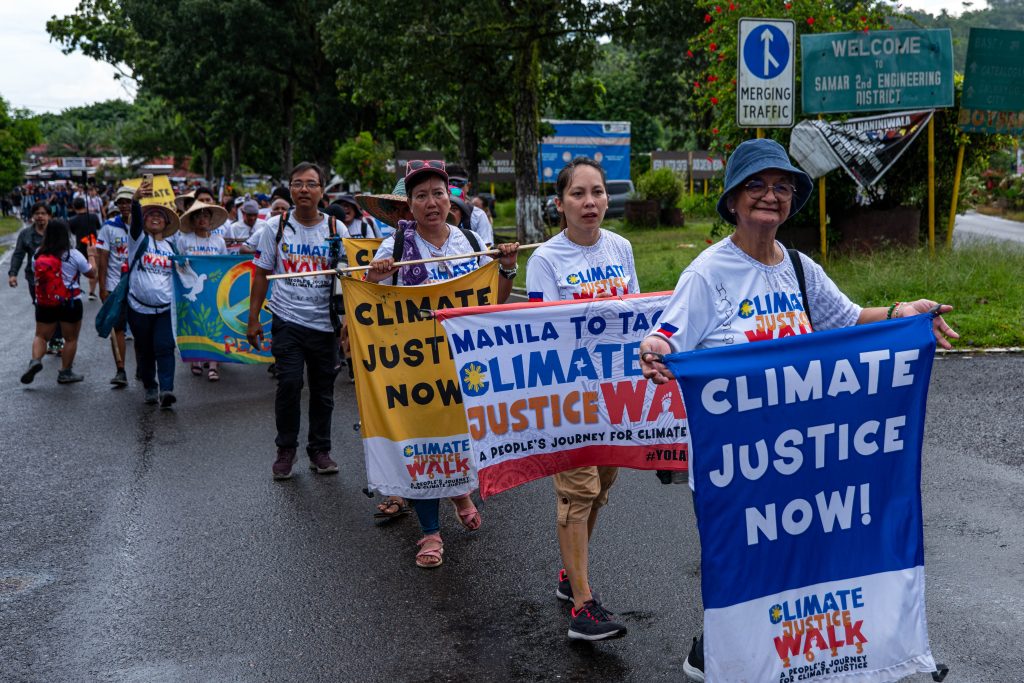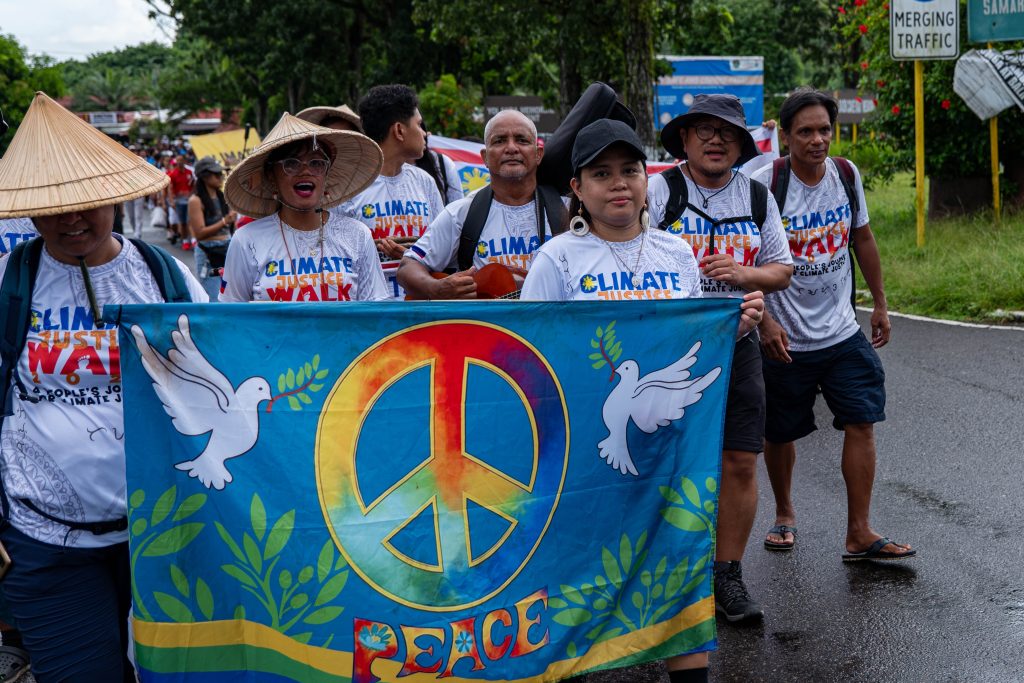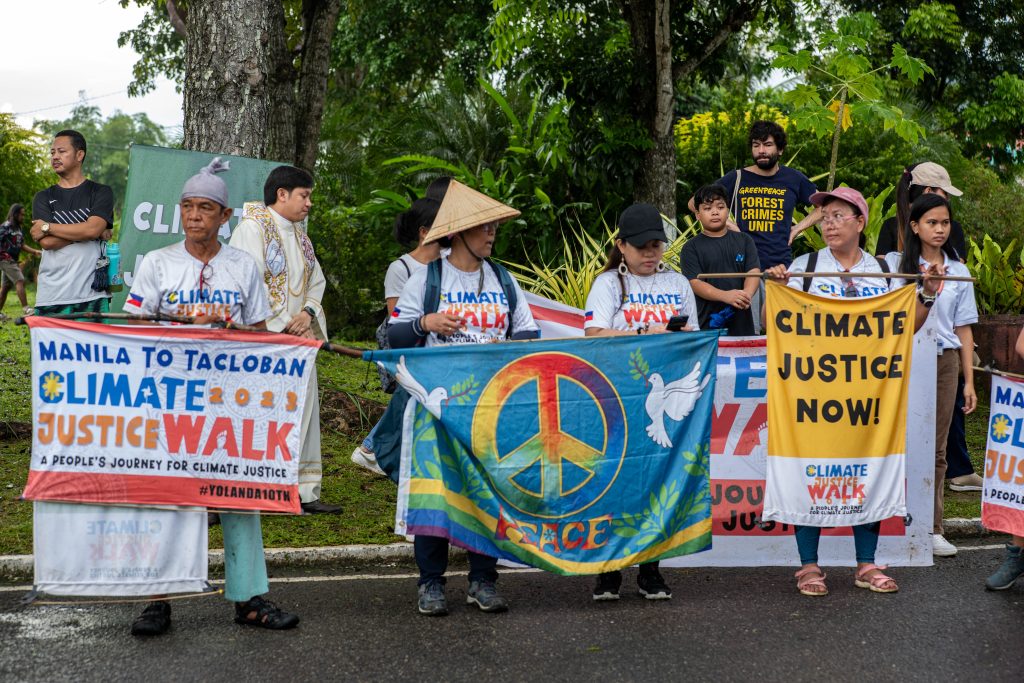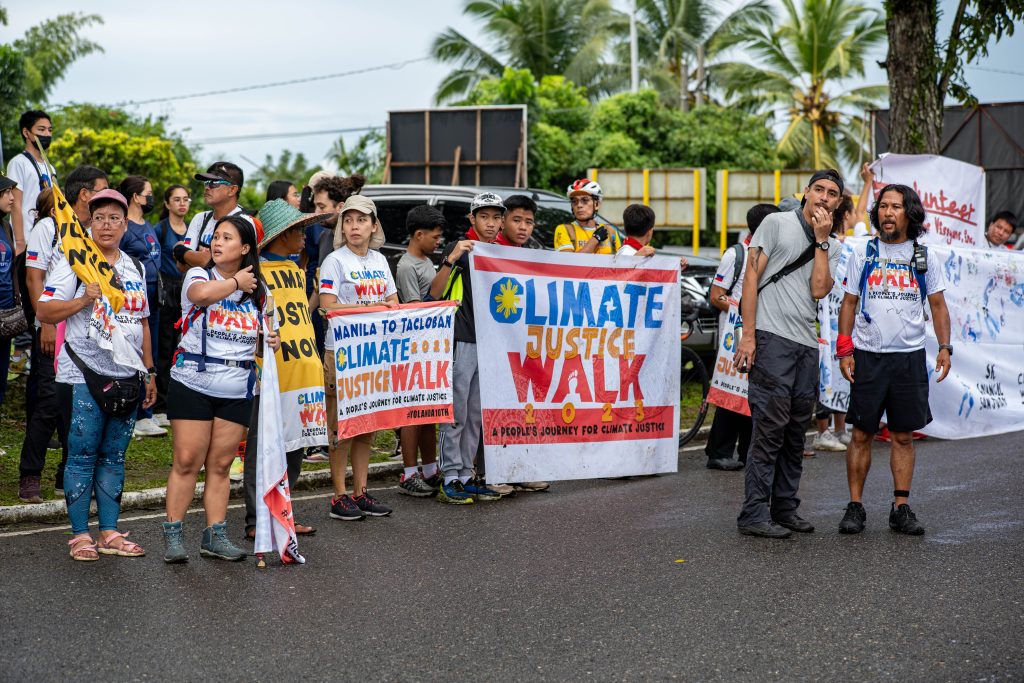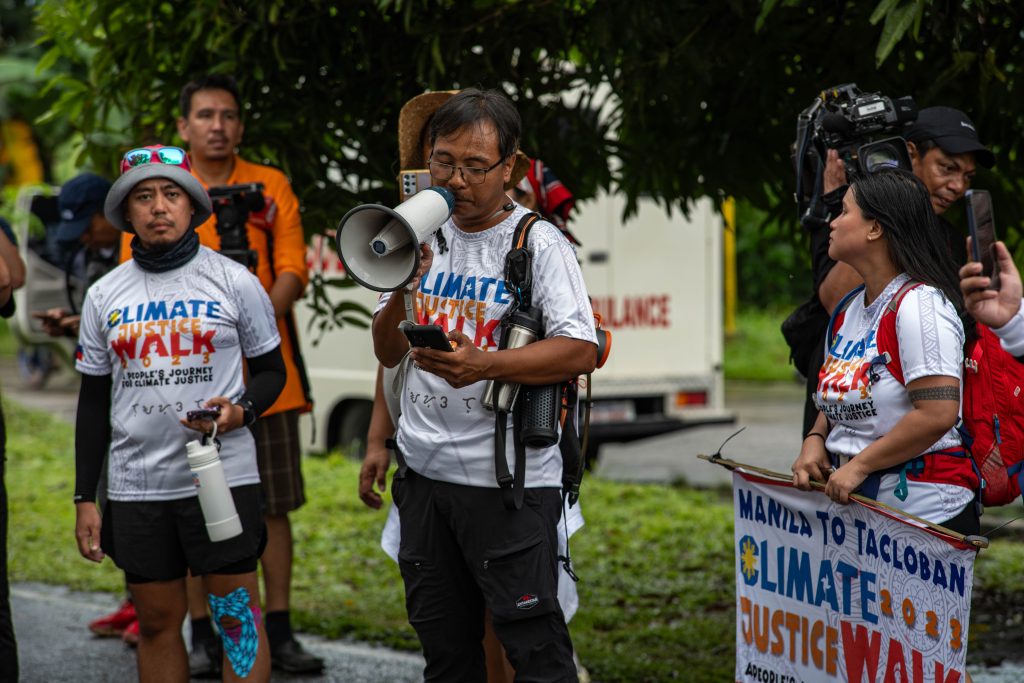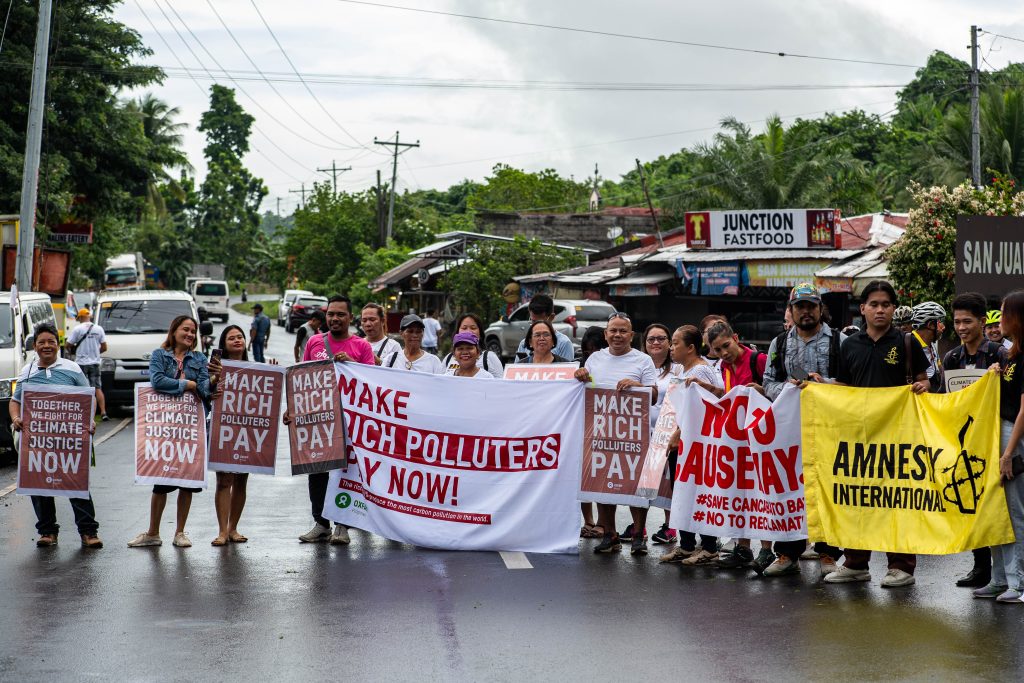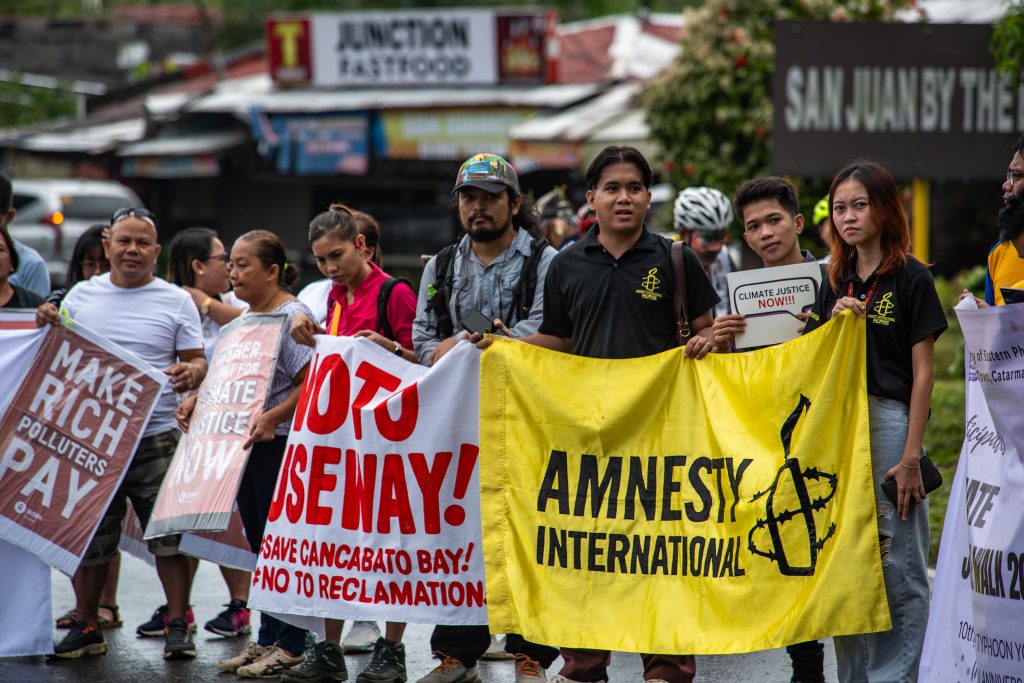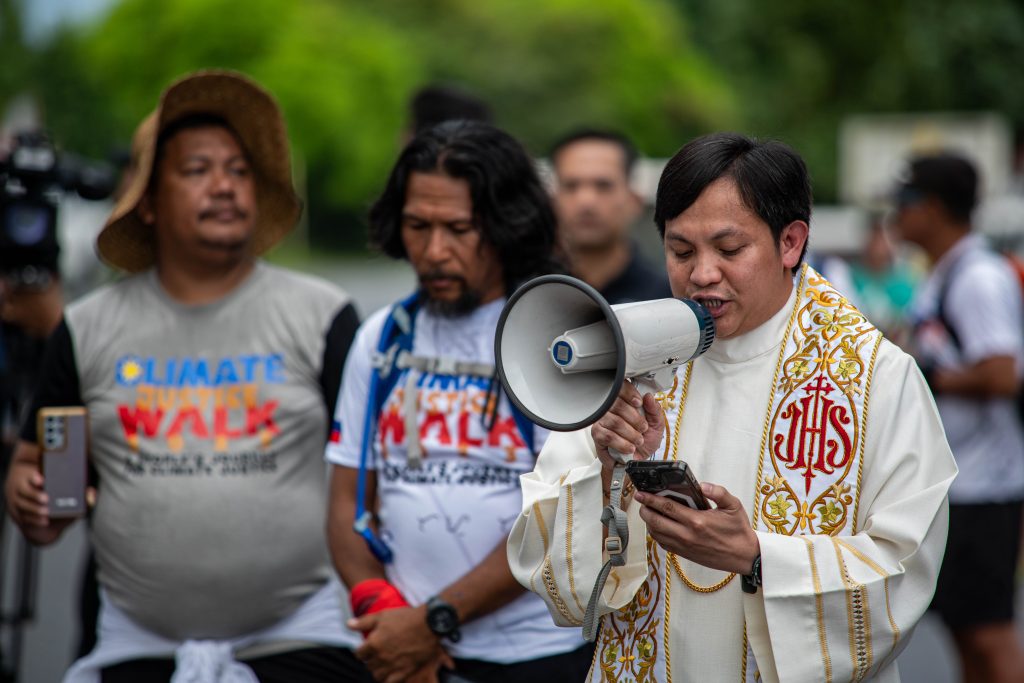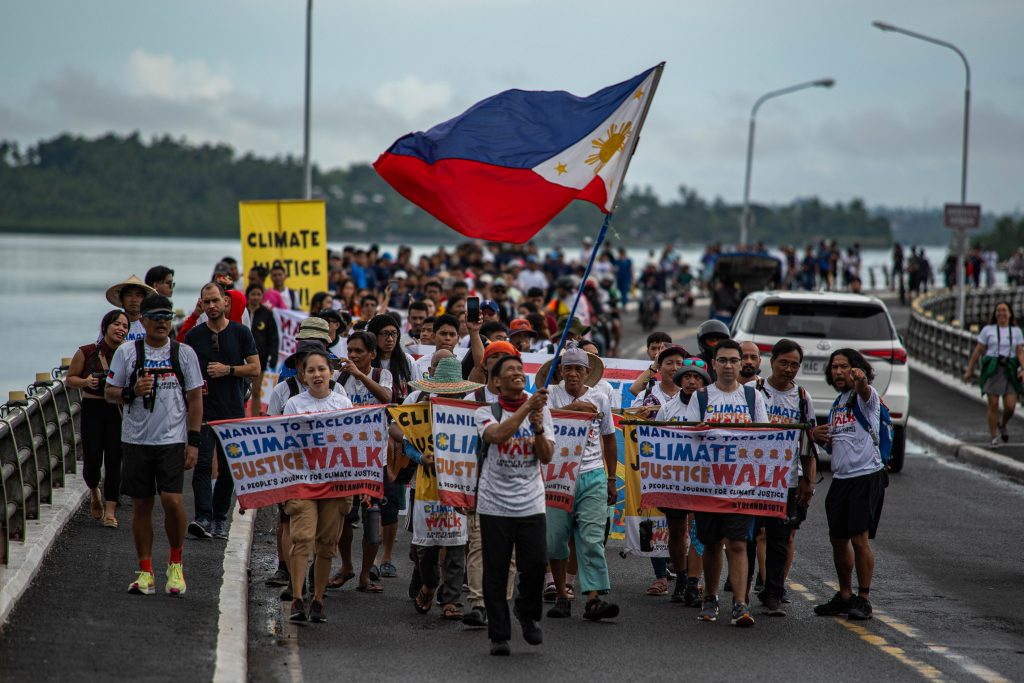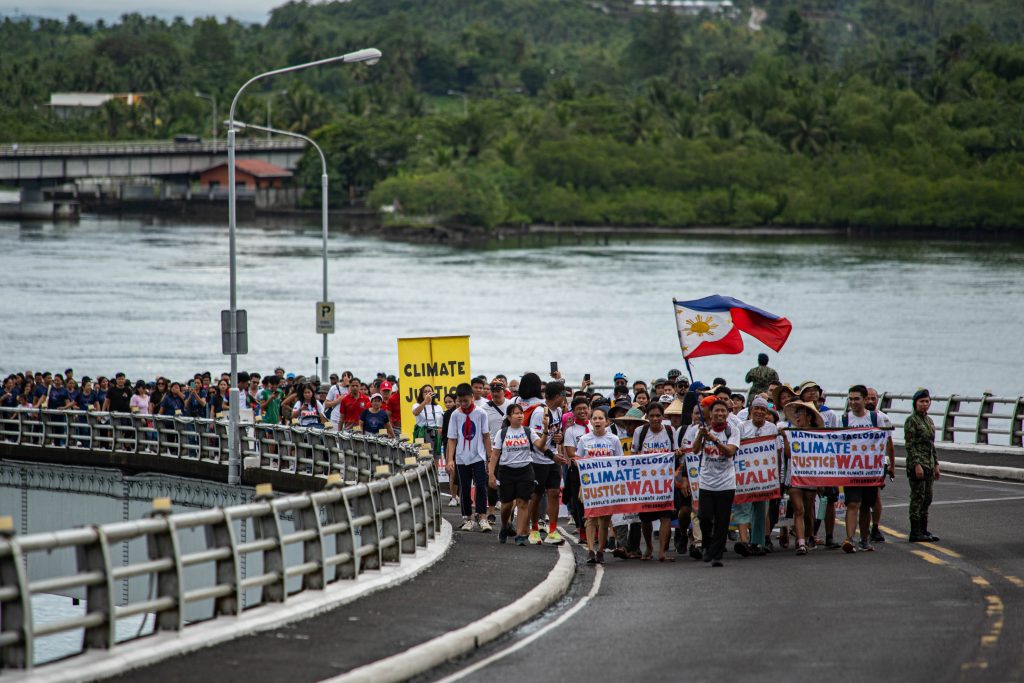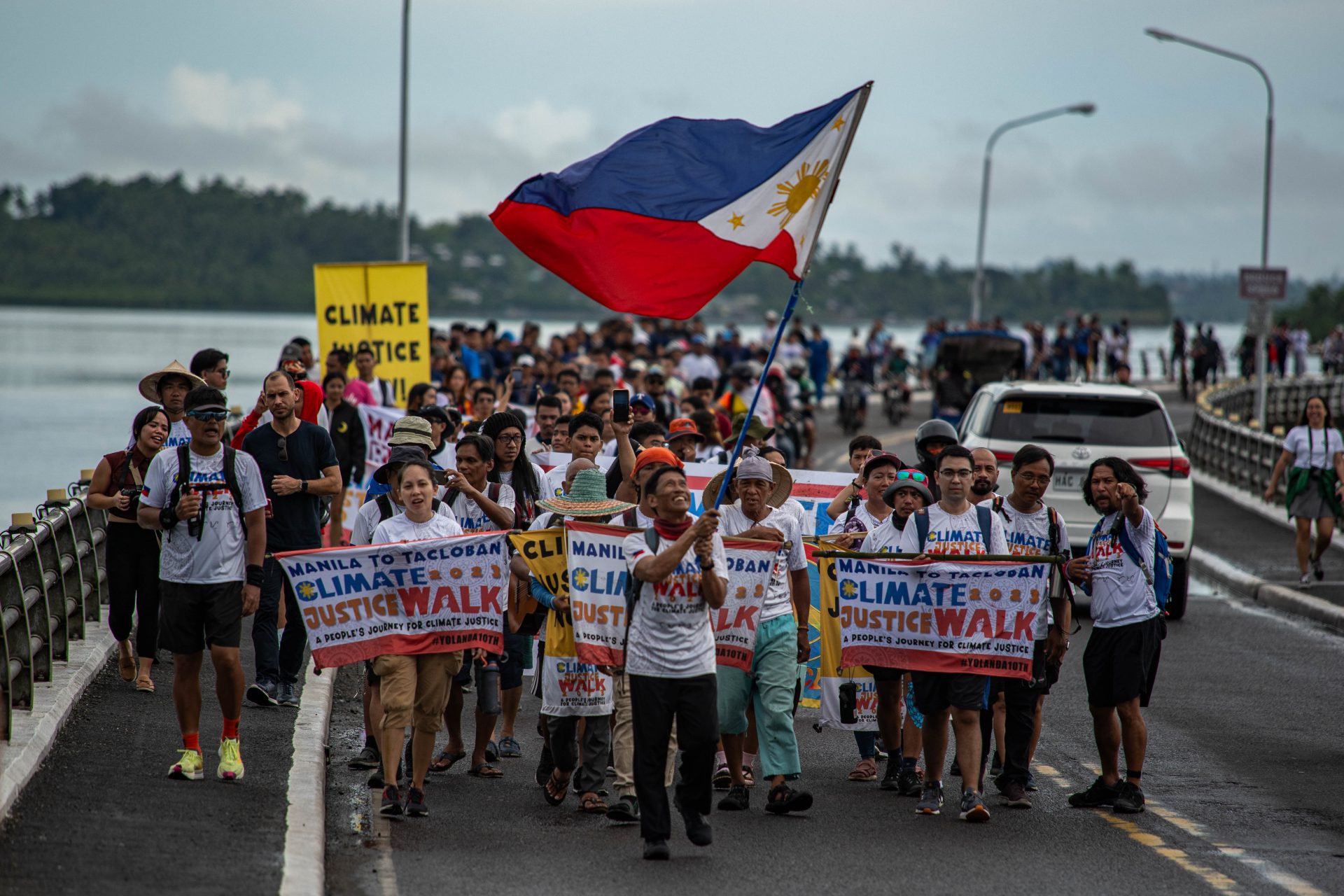Climate activists on November 7 reached the ‘ground zero’ of super typhoon Haiyan, exactly one month after embarking on the 2023 Climate Justice Walk from Manila’s Kilometer Zero.
The ‘climate walk,’ coinciding with the 10th-anniversary commemoration of the Haiyan onslaught in the country, concluded in Tacloban City.
The activists staged a short protest rally before symbolically crossing the San Juanico bridge, which was followed by a program at the Leyte Provincial Capitol grounds.
“The Climate Justice Walk does not end in Tacloban. Our real destination is in people’s hearts and minds- for climate hope to take root and yield results,” said Yeb Saño, who led the climate walk.
Saño, who is the executive director of Greenpeace Southeast Asia, said for climate justice to be realized, “the world’s biggest climate polluters must be held accountable and pay up for their contribution to the climate crisis”.
Super typhoon Haiyan was considered as the “deadliest case of extreme weather” which claimed more than 6,000 lives when it the country in 2013.
Over 500 people, including typhoon survivors and residents, welcomed the climate activists in Sta. Rita Junction in Samar province before crossing the bridge to Leyte province.
Joanna Sustento-Bacsa, a climate activist and Haiyan survivor, said the Climate Justice Walk “takes me back to 10 years ago when Tacloban was in complete shambles”.
Sustento-Basca recalled how she and her brother walked after the typhoon to look for food, shelter, and their missing loved ones.
“The realization that you lost everything yet you survived gave no comfort, no destination. We walked along with others, yet I have never felt so alone,” she said.
“Now, a decade later, I find myself walking again but with a whole community undertaking a meaningful journey for Climate Justice,” she added.
Rodne Galicha, executive director of Living Laudato Si Philippines, expressed the need for long-term climate solutions to help communities be prepared and ready to cope and face the challenges of this crisis.
“But above all, polluters must pay and be held accountable. Climate crimes must be litigated and climate debt must be settled,” he said.
The Climate Justice solidarity walk covered a distance of approximately 1,000 kilometers, reminiscent of the 2014 Climate Walk commemorating the 1st Haiyan anniversary.
The team traversed the terrain on foot, bicycle, and ferry, making 30 significant stops where civic and church leaders joined them to raise awareness about climate action.
During the stops, two climate emergency declarations were made in the provinces of Albay and Catbalogan.
Both recognized the urgent need for climate action, the phasing out of fossil fuels, and the imperative for stronger global and national measures to address loss and damages.
Father Antonio Labiao, executive director of Caritas Philippines, said the Haiyan commemoration “is a reminder that Filipinos must continue to work for climate and ecological justice”.
“People are forced to leave their homes and communities due to a range of climate-induced disasters. Environmental displacement can have profound social, economic, and psychological impacts on affected communities,” he said.
All photos by Mark Saludes
